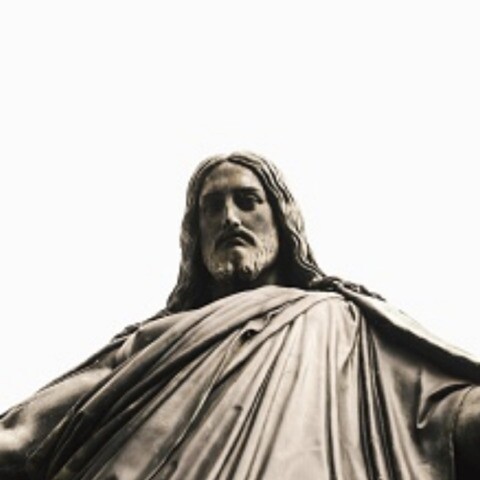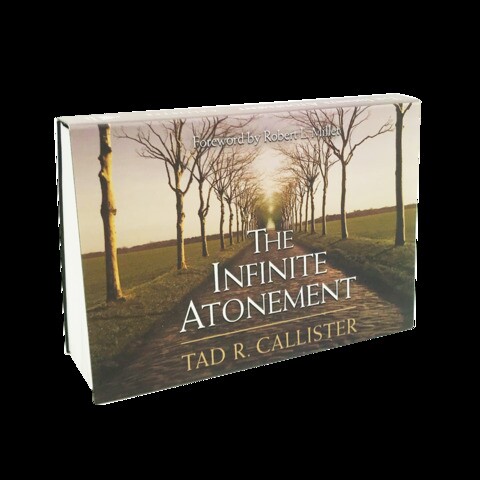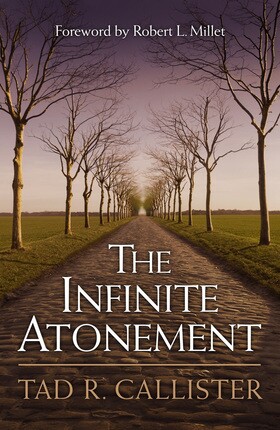The following excerpt from The Infinite Atonement originally ran on LDS Living in March 2018.
One Sunday morning our teenaged son stood with two other priests to administer the sacrament, as they had done on many prior occasions. They pulled back the white cloth, but to their dismay there was no bread. One of them slipped out to the preparation room in hopes some could be found. There was none. Finally our troubled son made his way to the bishop and shared the concern with him. A wise bishop then stood, explained the situation to the congregation, and asked, "How would it be if the sacrament table were empty today because there were no Atonement?" I have thought of that often—what would it be like if there were no bread because there had been no crucifixion, no water because there had been no shedding of blood? If there had been no Atonement, what would the consequences be to us? Of course, the question is now moot, but it does put in perspective our total dependence on the Lord. To ask and answer this question only heightens our awareness of, and appreciation for, the Savior. What might have been, even for the "righteous," if there had been no atoning sacrifice, stirs the very depths of human emotion.
First, there would be no resurrection, or as suggested in the explicit language of Jacob: "This flesh must have laid down to rot and to crumble to its mother earth, to rise no more" (2 Nephi 9:7).
Second, our spirits would become subject to the devil. He would have "all power over you" and "seal you his" (Alma 34:35). In fact we would become like him, even "angels to a devil" (2 Nephi 9:9).
Third, we would be "shut out from the presence of our God" (2 Nephi 9:9), to remain forever with the father of lies.
Fourth, we would "endure a never-ending torment" (Mosiah 2:39).
Fifth, we would be without hope, for "if Christ be not risen, then is our preaching vain, and your faith is also vain. . . . If in this life only we have hope in Christ, we are of all men most miserable" (1 Corinthians 15:14, 19).
On one occasion I was asked to speak at a graveside service for a fine man who had passed away. Prior to the service, I met with the family at the mortuary. It was obvious from those in attendance that the deceased was greatly loved and missed. For a few moments, as the family gathered round the casket, I tried to offer some words of counsel and comfort. We then had a word of prayer and all departed for the graveside service. I lingered long enough, however, to see the bereaved widow walk over to the casket for the last time, gently kiss her beloved companion's forehead, and say, "Goodbye, darling, I love you." How senseless life would be if that goodbye were forever. Yet such would be the case without the Savior.
If there had been no Atonement, the rising of every sun would be a reminder that for us it would one day rise no more, that for each of us death would claim its victory, and the grave would have its sting. Every death would be a tragedy, and every birth but a tragedy in embryo. The culmination of love between husbands and wives, fathers and sons, mothers and daughters would perish in the grave, to rise no more. Without the Atonement, futility would replace purpose, hopelessness would be exchanged for hope, and misery would be traded for happiness. If there were no Atonement, Elder Marion G. Romney declared, "The whole purpose for the creation of earth and our living upon it would fail."6 President David O. McKay quotes James L. Gordon in this regard: "A cathedral without windows, a face without eyes, a field without flowers, an alphabet without vowels, a continent without rivers, a night without stars, and a sky without a sun—these would not be so sad as a . . . soul without Christ."7 The contemplation of such a world as this would be the most despairing thought that could ever darken the mind or sadden the heart of man. But fortunately, there is a Christ, and there was an Atonement, and it is infinite for all mankind.
Lead image from Getty Images
For the first time, this beloved gospel classic is available in a new journal edition, providing you large, faintly lined margins to use as a canvas to express your thoughts, document insights you’ve received, or create your own visual art, illuminations, or calligraphy. With The Infinite Atonement, Brother Tad R. Callister offers us what may be the most comprehensive, yet understandable, treatment of the Atonement in our day. He thoughtfully probes the infinite scope of this "great and last sacrifice," describing its power and breadth and explaining how it redeems us all. Available now at DeseretBook.com.





